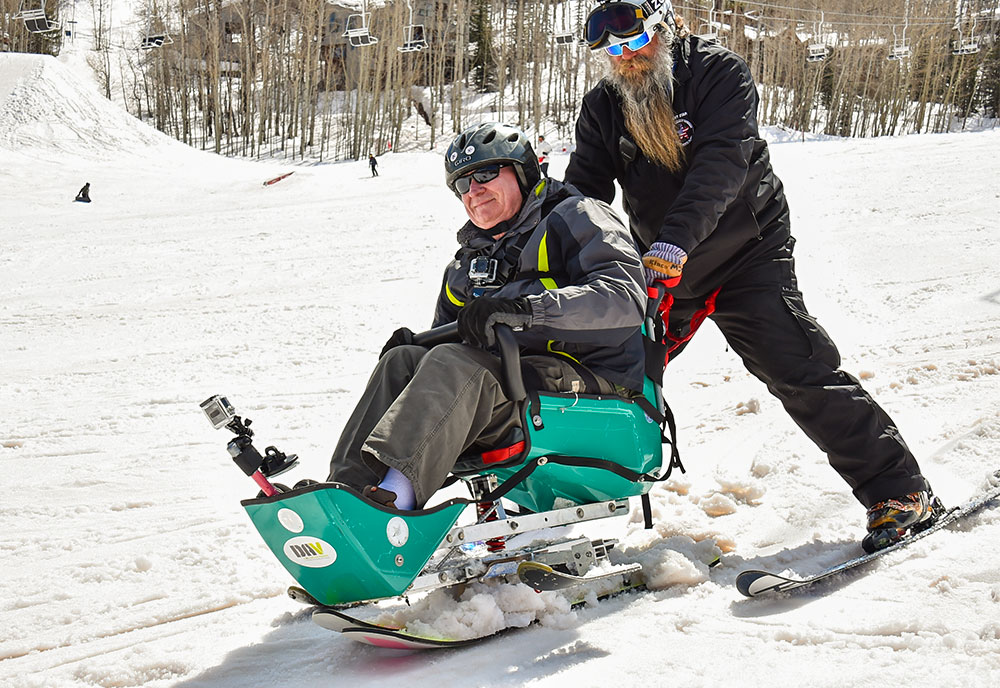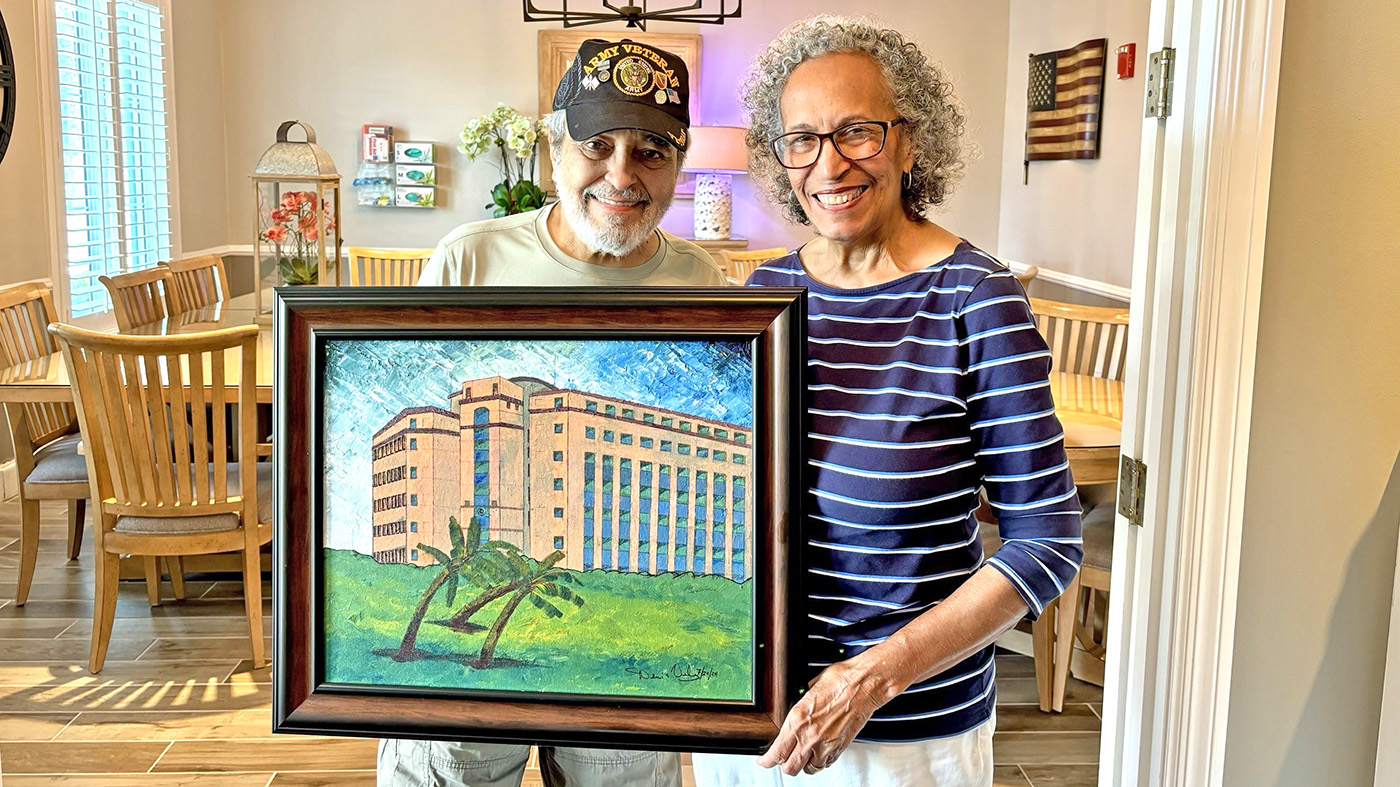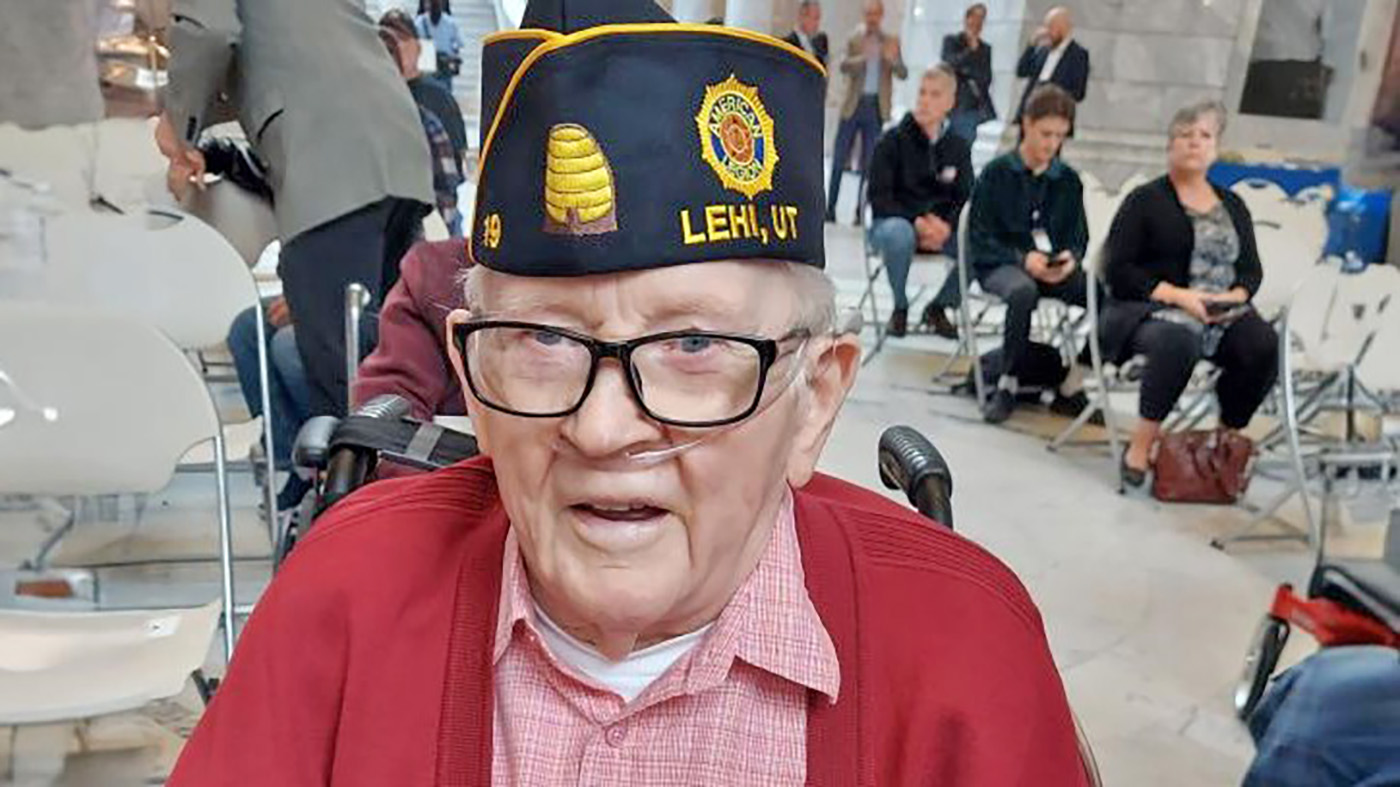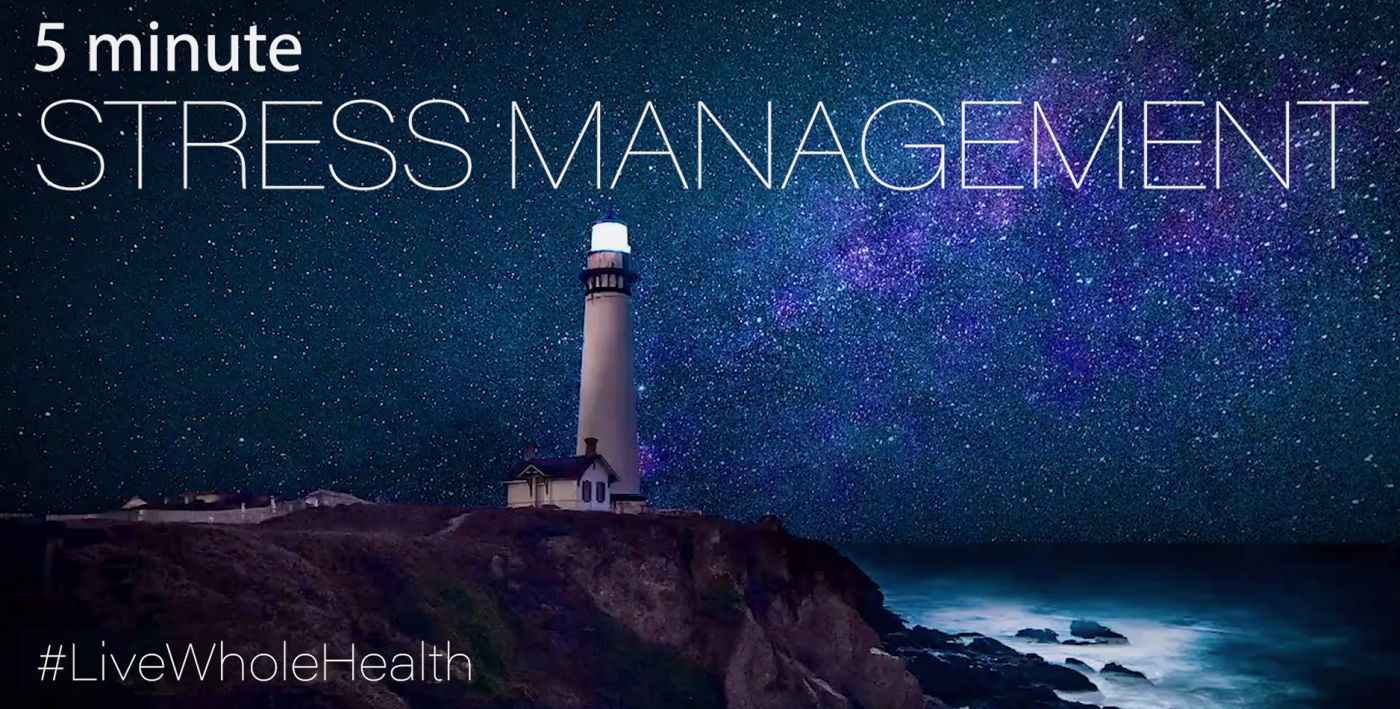This article was original posted on Inside Veterans Health.
Nearly 400 disabled Veterans and active duty personnel are in Snowmass Village, Aspen, Colo., this week to make “miracles on a mountainside” at the National Disabled Veterans Winter Sports Clinic.
Ray Hancock
Ray Hancock served in the Navy in Desert Storm. Watching his fellow Veterans in the different activities, he says, “These guys are just incredible, what they’re doing … wow!”
The National Disabled Veterans Winter Sports Clinic is a world-leader in adaptive winter sports instruction for U.S. military Veterans and active duty Servicemembers with disabilities.
Set in stunning Snowmass, Colorado, the clinic celebrates its 29th year, bringing nearly 400 Veterans with traumatic brain injuries, spinal cord injuries, orthopedic amputations, visual impairments, and certain neurological conditions to the mountain.
Participating Veterans, seriously wounded while protecting our freedom, have an opportunity to pack more miracles into the weeklong, life-changing event than they ever dreamed possible. They are reminded of the wonder and achievement life still has to offer, despite their profound disabilities.
After conquering a snow-covered mountainside, everyday challenges of life seem much more surmountable for these participants who’ve lost a limb or sight, or endure paralysis. Our Veterans draw inner strength from this experience of a lifetime and use it to overcome life’s challenges head-on when they return home. They also inspire those without disabilities to catch their spirit and go after their dreams.
The National Disabled Veterans Winter Sports Clinic is the largest rehabilitative program of its kind in the world today. It utilizes adapted physical activities as well as workshops and educational sessions to aid in the rehabilitation of severely disabled Veterans.
Just some of the adapted sports and activities that have been offered in the past 20 years include:
- Alpine and Nordic skiing
- Snowmobiling
- Scuba diving
- Fly fishing
- Wheelchair golf
- Wheelchair self-defense
- Rock wall climbing
- Sled hockey
- Trap shooting
- Blues harmonica instruction
- Dog sledding
- Goal ball for the visually impaired
- Wheelchair fencing
- Amputee volleyball
Jim Martinson
63-year-old Army Veteran Jim Martinson lost his right leg in Vietnam. He won a gold medal for downhill skiing in 1992 at the winter games and is now participating in the hockey competitions. He offers this advice to newly-injured Veterans, “Get out there, try it and don’t give up.”
The clinic targets disabled Veterans with spinal cord injuries, amputations, neurological disorders, and visual impairments. The Winter Sports Clinic experience improves physical well-being, mental health and self-esteem, thereby enabling Veterans with profound disabilities to rediscover life after disability.
The clinic assists in achieving higher levels of self-actualization and empowers the Veteran participant to live a happier, healthier and more productive lifestyle.
This innovative clinic when first introduced was not readily accepted by the conventional health care mindset. The concept of utilizing challenging adaptive activities in a winter outdoor environment was so new and outside of traditional medical care that many doubted it could succeed and be accepted as an alternative to routine medical intervention.
Kristian Cedeño
Kristian Cedeño sums it up for so many Veterans at the winter clinic: “It’s an opportunity to realize that you’re not done, you’re not over and you’re not broken.”
The National Disabled Veterans Winter Sports has drastically changed the lives of thousands of disabled Veterans, and just as important, has altered the perception the general public has of people with disabilities.
Topics in this story
More Stories
Army Veteran Denis Velez donated a painting of his VA hospital as a way of giving back for his treatment there.
Ron Anderson's story of being caregiver for his father in his final years is a journey of love and duty.
Ignoring challenging emotions can negatively impact our health. Breathe through worry, anger and sadness in 5 minutes with this week's #LiveWholeHealth practice.






